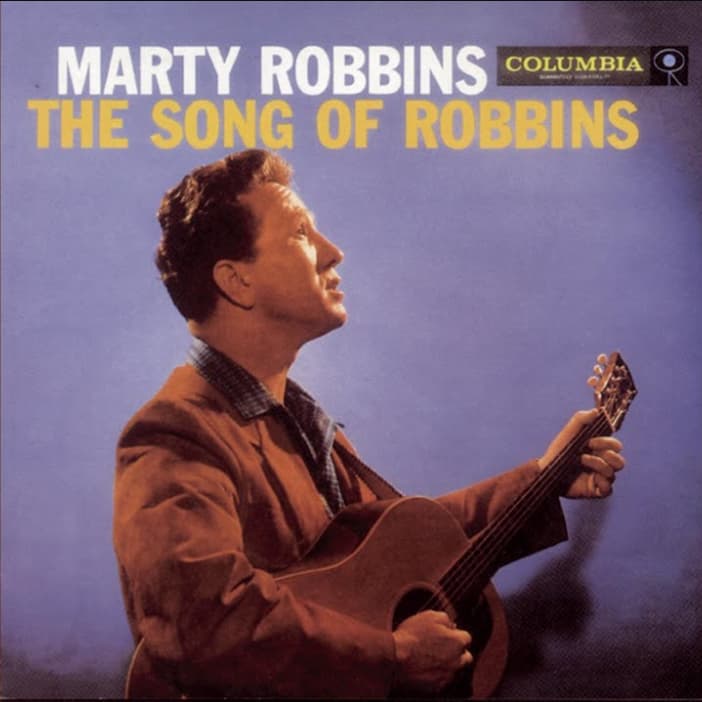
“Rose of Ol’ Pawnee” is a poignant ballad about a cowboy’s lost love and his enduring memory of her.
A Dusty Trail of Memory: Marty Robbins and the “Rose of Ol’ Pawnee”
In the sprawling landscape of country music, certain songs don’t just tell a story; they build a world, a dusty, sun-baked vista filled with longing and quiet reflection. Such is the case with Marty Robbins‘ 1957 gem, “Rose of Ol’ Pawnee.” Released on the album The Song of Robbins, this track wasn’t a chart-topper like some of his later hits, but its understated beauty has made it a timeless piece, a hidden jewel in the crown of a true American troubadour. It’s a song that speaks to the heart of what it means to remember a love that has long since faded into the past, leaving behind only a trail of cherished memories.
Marty Robbins was a masterful storyteller, a man who could paint a vivid picture with a simple melody and a few well-chosen words. His voice, a rich baritone that could be both gentle and commanding, lent a profound authenticity to his narratives. In “Rose of Ol’ Pawnee,” he steps into the boots of a cowboy, a lone figure riding the open range, his thoughts consumed by a girl named Rose. The song’s narrative is a tender eulogy for a love that was, a love that existed in a simpler, perhaps more innocent time. It’s a lament for a past that can never be reclaimed, a theme that resonates deeply with anyone who has ever looked back on their own life and felt a pang of nostalgia for what once was.
The song’s power lies in its ability to evoke a specific sense of place and time. You can almost feel the dry wind on your face, see the vast, empty sky, and hear the lonely creak of the saddle as Robbins sings. He doesn’t just describe the scenery; he makes you feel the emotional weight of it. The “Rose of Ol’ Pawnee” is more than just a girl; she’s a symbol of a lost era, a moment of happiness that has become a ghost of the past. Her memory is a constant companion on the lonely trail, a silent passenger on the journey through life.
The story behind the song is as straightforward as its melody. It’s not based on a specific, dramatic event, but rather on a universal human experience: the enduring power of memory and the quiet ache of a love that’s no longer within reach. Marty Robbins was known for his love of the Old West, and many of his songs, like the classic “El Paso,” were deeply rooted in this romanticized vision of a bygone era. “Rose of Ol’ Pawnee” fits perfectly within this canon, a testament to his ability to blend personal sentiment with historical and cultural themes.
The song’s meaning is multi-layered. On the surface, it’s a simple love song. But beneath that, it’s a profound meditation on loss, memory, and the passage of time. It reminds us that while we can’t relive the past, we can hold onto the memories, keeping the people we’ve loved alive in our hearts. For those of us who came of age listening to country music, the song is a bittersweet reminder of a time when life seemed less complicated, when a simple song could capture the entire human condition. It’s a hymn to the past, a quiet prayer for a love that will forever bloom in the fields of memory. The song’s quiet melancholy is its greatest strength, offering a sense of shared experience, a quiet nod of understanding between the singer and the listener. It’s a song that proves that the most powerful emotions are often the ones left unspoken, the ones that linger in the quiet spaces between the notes.